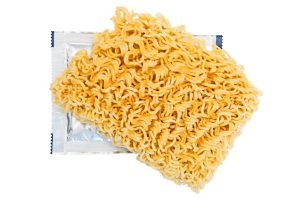 When it comes to convenience, instant noodles are, hands down, the best choice to pacify your hunger. I have resorted to them myself quite a number of times in order to satisfy my gnawing hunger, rather than spending an hour trying to decide before preparing a proper meal. But the recent controversy on Maggi, Knorr and, the much more recent still, Top Ramen noodles have seen them withdrawn from the shelves and from our diet choices. While some still look for other instant noodles available in supermarkets, most people have grown cautious. But the question is, why has it taken this long to realize the health risks that such foods carry? It’s not like we don’t know, or at least, suspect the unhealthiness of processed and ready-to-eat-foods. But the convenience they offer has made us blind and deaf to reason. If only we cared to look deeper into what went from the shelves to our kitchens and into our bodies, we wouldn’t be able to say that we have not been warned.
When it comes to convenience, instant noodles are, hands down, the best choice to pacify your hunger. I have resorted to them myself quite a number of times in order to satisfy my gnawing hunger, rather than spending an hour trying to decide before preparing a proper meal. But the recent controversy on Maggi, Knorr and, the much more recent still, Top Ramen noodles have seen them withdrawn from the shelves and from our diet choices. While some still look for other instant noodles available in supermarkets, most people have grown cautious. But the question is, why has it taken this long to realize the health risks that such foods carry? It’s not like we don’t know, or at least, suspect the unhealthiness of processed and ready-to-eat-foods. But the convenience they offer has made us blind and deaf to reason. If only we cared to look deeper into what went from the shelves to our kitchens and into our bodies, we wouldn’t be able to say that we have not been warned.
Instant noodles are made to bear a longer shelf life for which reason they are highly processed. Stripped of all nutrition, they are high in fat, calories, sodium, artificial coloring and flavorings, additives, and preservatives. Made from maida – a milled and more refined version of wheat flour – they are richer in flavor but, unfortunately, devoid of any nutrition. They take a toll on the digestive system, more often leading to obesity when taken in excessive quantity and frequency. They further contain saturated fats which if consumed excessively or regularly can raise the level of cholesterol in the blood.
“In most cases monosodium glutamate (MSG) as well as tertiary-butyl hydroquinone (TBHQ) – a chemical preservative derived from the petroleum industry – may be present in instant noodles for their taste enhancing and preserving properties. Though dietary intake of these elements is allowed within a limit, regular intake of these can cause severe health issues,” said Dr. Sunil Sharma, general physician and head of emergency, Madan Mohan Malviya Hospital, New Delhi.
A South Korean study, reported by the Washington Post last year, concluded that excessive instant noodle consumption can not only trigger obesity but also metabolic ailments like diabetes, high blood pressure, hypertension, heart problems and so on.
All in all, fast food and processed items can be consumed occasionally but should never replace actual meals.


 Traqade
Traqade






























